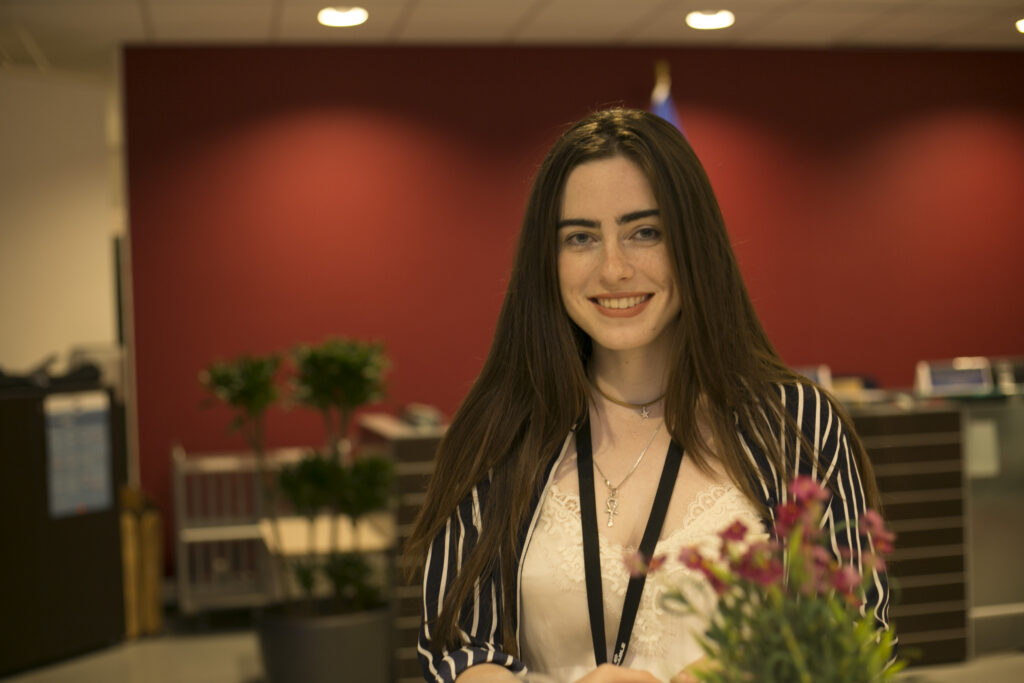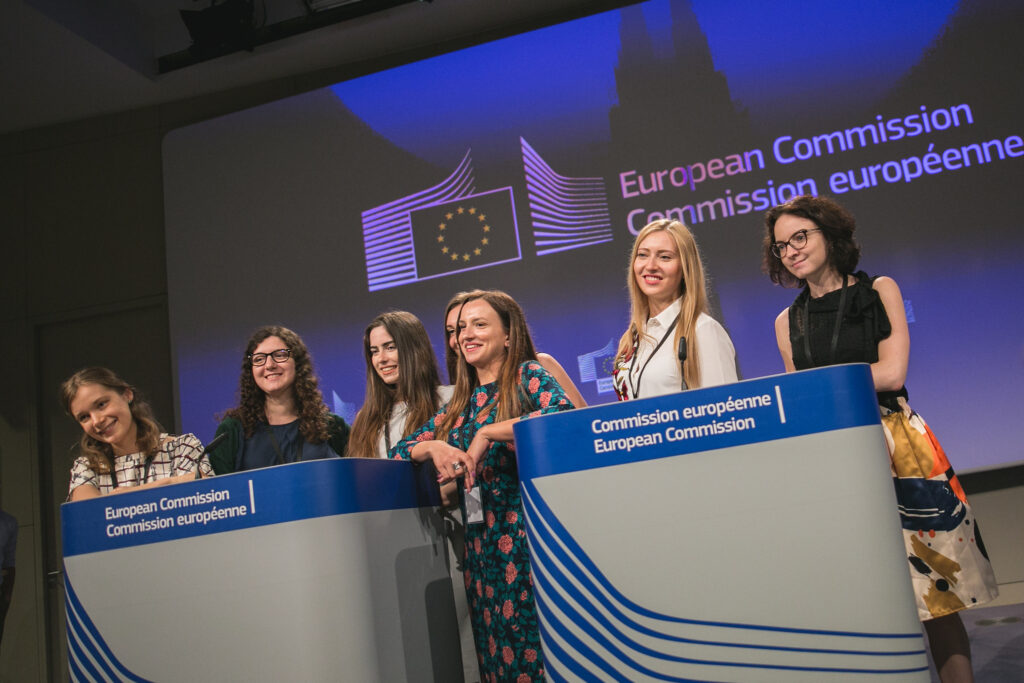
Press freedom in Ukraine: how to have your voice heard?
In the age of globalisation, information has become a tool that is able to influence political decisions and introduce new approaches to our perception of the world. It is no wonder that the media is sometimes labelled the ‘Fourth Estate’. In a situation where Ukrainian society often faces the invasion of carefully organised informational attacks, including disinformation on the European Union, it is important to objectively analyse the information received and let your voice be heard, in order to promote a society that critically and actively participates in the media landscape. Just give your opinion, participate in debates or share your experience, whether it is good or bad!
In this story, I will share my pieces of advice on how to speak your mind and gain the attention of a broad audience, based on my personal experience:
Find somewhere to get your work published
The Internet, naturally, is a platform that gives anyone the opportunity to express his or her opinion, speak his or her mind and share information instantly, so you could consider starting a blog. However, if you’re just a beginner and the topic you’re writing about is ubiquitous, you may struggle to get the attention you desire – or deserve. In this case, I would recommend searching for Internet media who have a wider audience and may publish your work. Electronic magazines, newspapers and web-based media in general are always in search of good material and often willing to cooperate with young journalists, freelancers and students. In Ukraine, there are plenty such new online resources – and they might be interested in you! Some examples include: LITCENTR, Na chasi, Chytomo and OGO.
 Bohdana Sybikovska, Young European Ambassador from Ukraine
Bohdana Sybikovska, Young European Ambassador from Ukraine Young European Ambassadors from Ukraine at the YEAs Meet-up in Brussels
Young European Ambassadors from Ukraine at the YEAs Meet-up in Brussels
Seize the opportunities around you
When you’re a student, you have almost unlimited access to the world of academia and research. You may consult academic articles for free online, on platforms such as Google Scholar and JSTOR. Also, I recommend that you attend as many meetings and conferences as possible, especially if they are connected to your subject of interest. Usually, the organisers invite media representatives to events so that they can cover them, so attending the event will give you an opportunity to network and talk to the right people. Finally, participating in debates and clubs at your university will enhance your public speaking and argumentative skills, which is useful to make your voice heard.
Make your point clear
Time is money. If you do not get straight to your point and just beat around the bush, you risk over-talking the issue and probably won’t deliver the message you intended to. Speak directly about the most interesting things you have experienced, or the most important information you are trying to convey. Be conscious of the structure and length of your message and always tailor it to your audience. Depending on the means you use (essay, newspaper article, social media post, public hearing, live streaming, brochure), your message will have to be structured in a specific manner and have a certain length. This article explains how writing for online or print media is very different. Finally, remember to be creative to catch the attention of your audience. It is important to tailor the content, structure and medium of your message based on your audience, as you do not communicate with teenagers in the same way as you do with your parents or grandparents. ☺
Be critical
As mentioned earlier, it is easy in Ukraine (and in many other European countries) to get confused by the information we receive every day. To be able to spot ‘fake news’ or propaganda, many online media outlets were created. Among them, StopFake Ukraine and EU vs. Disinfo are good examples. It is important to be well aware of the media landscape in your country. In my experience, media literacy will not only help you to better analyse critically the information you receive, but also to improve your journalistic skills.
Overall, Ukraine is now experiencing a renaissance in journalism and is hungry for new ideas and citizen journalism, for which the Internet can be a good platform. It is worth remembering that the level of press freedom is one of the indicators that measure democracy. Unfortunately, there are still some complications when it comes to young people being heard. Nevertheless, if you are young, talented and your message is meaningful, you will get your golden opportunity!
Bohdana Sybikovska – Ukraine
Stay informed about EU-Ukraine relations
Join the ‘Young European Neighbours’ network
My name is Bohdana and I am a Young European Ambassador from Ukraine. I am currently completing my final year of studying Contemporary Diplomacy in Warsaw, Poland. If you want to negotiate something or debate just for the sake of argument – I am the right person! I agree with a statement from Joseph Joubert: the aim of an argument or discussion should not be victory, but progress. Apart from my academic interests, I always try to devote some time to music, composing and creating songs. I truly believe that active youth can change this world and it is only up to us what the world will look like in the nearest future. I am a member of numerous organisations in Poland trying to promote civil society and organising meetings with famous people, such as Radosław Sikorski, Bronisław Komorowski etc. My bachelor thesis on the “Role of the Security Council of the United Nations in the XXIst century” has won a best thesis competition in Lublin (Poland). I also am a prize winner of all-Ukrainian Oxford Debates competitions.
LATEST

How you can help the planet every day

Building Europe: Poland’s experience of joining the European Union and lessons for Ukraine

World Health Day 2024: My Health, My Right

EUREKA MEETS EUROPE – opportunities to develop and study. My experience

Can you wear pink in the workplace?
More campaign pages:
Interested in the latest news and opportunities?
This website is managed by the EU-funded Regional Communication Programme for the Eastern Neighbourhood ('EU NEIGHBOURS east’), which complements and supports the communication of the Delegations of the European Union in the Eastern partner countries, and works under the guidance of the European Commission’s Directorate-General for Neighbourhood Policy and Enlargement Negotiations, and the European External Action Service. EU NEIGHBOURS east is implemented by a GOPA PACE-led consortium. It is part of the larger Neighbourhood Communication Programme (2020-2024) for the EU's Eastern and Southern Neighbourhood, which also includes 'EU NEIGHBOURS south’ project that runs the EU Neighbours portal.

The information on this site is subject to a Disclaimer and Protection of personal data. © European Union,